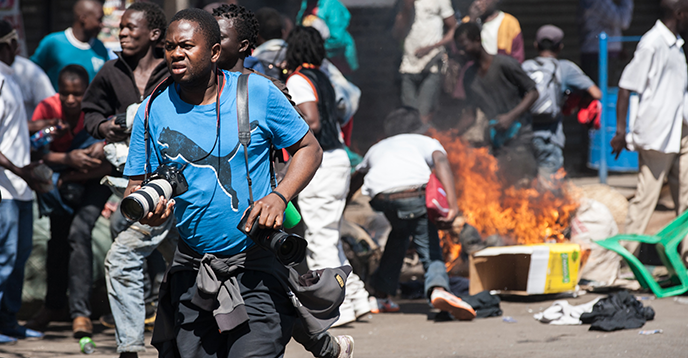Safety and Security Of Journalists: Paramount In Crisis Reporting
Martial Gnoukapasi
The headline doesn't insinuate journalists shouldn't be daring or be afraid to say the truth as it's required of them. They ought to be courageous and feracious yet not at the expense of their own lives. A journo should not be a hero in the grave.
Despite the call made by the UN security council in May of 2015 for countries to re-enforce laws that will ensure the protection of journalists targetted daily in conflict hit zones, figures of media men and women assaulted, detained and even killed are still on the rise.
According to statistics from the UN human rights office of the high commissioner, three hundred and thirty four(334) journalists were killed between 2006 and 2014 world over and these figures have continue to escalate with the new wave of violence hitting nations today, Cameroon inclusive.
The anglophone crisis in Cameroon presented a new challenge for journalists practicing in the country especially those in the troubled North West and South West. News sources are becoming scarcer, access to interior communities is becoming difficult.
In an attempt to brave the odds are do their job journalists practicing in the english speaking regions of Cameroon are tagged, and targeted by both state and non state armed actors involved in the crisis. This has led to random and wanton arrests by both sides, and the incaciration of many in disclosed and undisclosed locations.
In 2019 alone we had journalists practicing in the North West who were kidnapped and taken to unknown destinations. Some came under heavy gun battles between state and non state actors, with some sustaining severe injuries during such battles.
In a recent trainning on safety and security of journalists organized by the Cameroon Community Media Network(CCMN) for it's North West and West chapter members, coming after a series of others organized by OCHA, participants were lectured on the five star role of journalism to permit them cover the current crisis without necessarily coming into harms way.
The workshop facilitator, public information officer for the coordination of humanitarian affairs office Fonyuy Frankline Kiven, in outlining a practical guide on the protection of journalists, regretted the fact that many journalists covering conflicts in cameroon often find themselves either in the right place at the wrong time or wrong time at the right place and are hardly at the right place and right time, which exposes them to a great amount of danger.
He cautioned for media men and women to always be the first guarantor of their own safety and security, despite the laws put in place by government, journalism associations and trade unions for the same purpose.
The crisis in anglophone Cameroon has also presented an opportunity for journos to master crisis reporting techniques, which as time goes on will help many to cover the crisis without necessarily coming in harms way.
It should be noted a journalist maintain the status of an ordinary civilian even in times of war.






Comments
Post a Comment